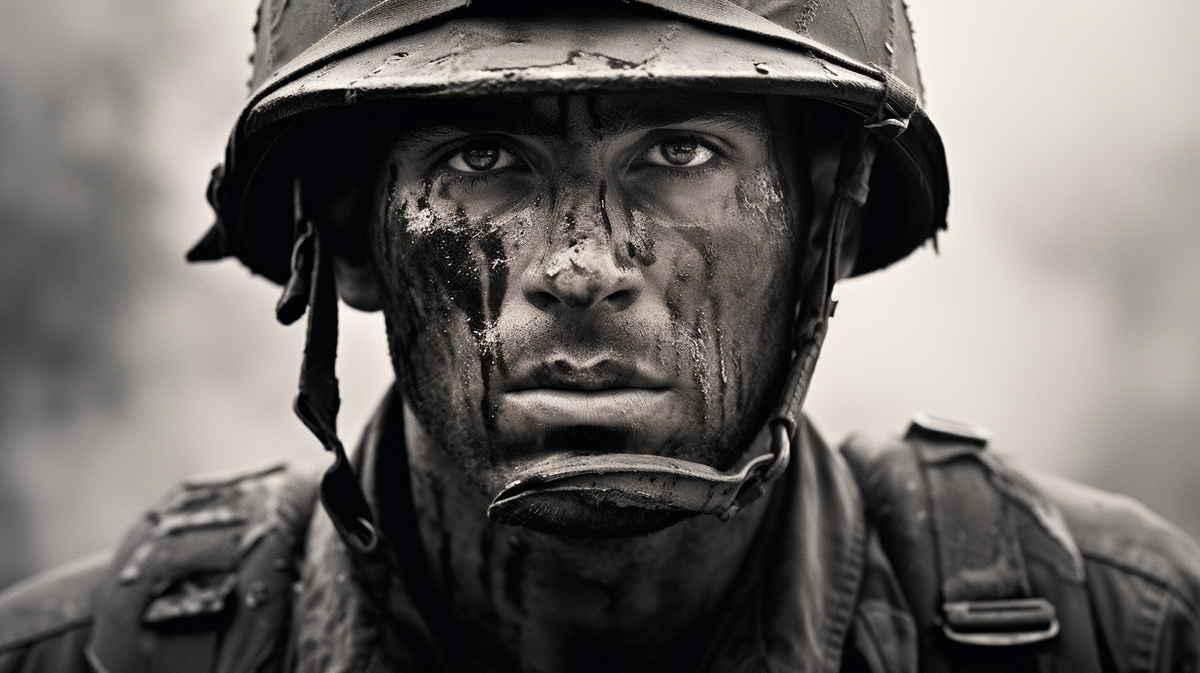The Hidden Challenge of Mental Fatigue in Precision Tasks: Insights from Military Marksmanship
Soldiers who underwent the mental fatigue intervention displayed a significant increase in decision-making errors during marksmanship tasks, with an error rate of 48% compared to 32% in the control group. This highlights a notable decline in judgment performance under mental fatigue.

In high-pressure environments like military operations, where precision and quick decision-making are crucial, mental fatigue can be a silent yet formidable adversary. This blog delves into a fascinating study that explores the impact of mental fatigue on marksmanship performance among trained soldiers. By examining the effects of mental fatigue in a live-fire scenario, the study sheds light on how cognitive exhaustion can influence fine-motor skills and decision-making in critical situations.
Mental Fatigue in High-Pressure Situations
Mental fatigue, distinct from physical exhaustion, is characterized by reduced cognitive functioning after prolonged mental effort. It's particularly relevant in high-stakes situations like military operations, where precision, quick judgment, and fine-motor skills are paramount. Understanding mental fatigue in such contexts is crucial, as it can impact the performance and decision-making abilities of individuals in critical roles, such as soldiers during marksmanship.
In environments where every decision and action could have significant consequences, comprehending the extent and impact of mental fatigue is not just beneficial—it's essential for optimal performance and safety.
Study Overview: Methodology and Participants
The study employed a rigorous methodology to assess the impact of mental fatigue on marksmanship performance. Soldiers participated in two different interventions: a mental fatigue intervention and a control condition. The mental fatigue intervention involved completing tasks designed to induce cognitive exhaustion, whereas the control condition was less mentally demanding.
Participants in the study were trained infantry soldiers, a group for whom precision and decision-making are critical skills. The study setting was a controlled live-fire scenario, providing a realistic and applied context to evaluate the effects of mental fatigue on marksmanship, specifically shooting accuracy and judgment.
Impact of Mental Fatigue on Marksmanship
The study's results provide insightful observations into the effects of mental fatigue on marksmanship. Soldiers who underwent the mental fatigue intervention displayed a significant increase in decision-making errors during marksmanship tasks, with an error rate of 48% compared to 32% in the control group. This highlights a notable decline in judgment performance under mental fatigue.
Interestingly, while mental fatigue substantially impacted decision-making abilities, it did not significantly affect shooting accuracy. This distinction suggests that mental fatigue more profoundly influences the cognitive aspects of marksmanship, such as decision-making and judgment, rather than the physical act of shooting.
These findings are critical in contexts where both precision and quick decision-making are essential, indicating that mental fatigue can compromise the quality of decisions without necessarily impacting the technical skills.
Physiological and Psychological Responses to Mental Fatigue
The study also examined the physiological and psychological responses of soldiers to mental fatigue. Soldiers subjected to the mental fatigue intervention reported a higher mental workload compared to the control group, indicating a subjective increase in cognitive strain. Additionally, objective measures such as heart rate variability were lower in the mentally fatigued soldiers, suggesting physiological changes accompanying the mental exhaustion.
These responses provide a comprehensive picture of how mental fatigue manifests in high-stress environments. The increased perception of mental workload and altered physiological states due to mental fatigue can have crucial implications for tasks that require sustained attention and quick decision-making, such as in military operations.
Understanding these responses is vital for developing strategies to counteract the effects of mental fatigue, ensuring that personnel in high-stakes scenarios can maintain optimal performance levels.
Implications for Military Training and Operations
The study's findings have significant implications for military training and operations. Given that mental fatigue can markedly impair decision-making in high-pressure situations, it's essential for military training programs to incorporate strategies for managing mental fatigue.
- Incorporating Mental Fatigue Awareness: Training programs should educate soldiers on the signs of mental fatigue and its potential impact on performance, particularly in tasks requiring precision and quick judgment.
- Training Under Fatigue Conditions: Simulating mentally fatiguing conditions in training could help soldiers adapt to and manage cognitive strain, enhancing their performance during actual operations.
- Balancing Cognitive Load: Military exercises should be designed to balance cognitive load, avoiding excessive mental strain that could lead to decreased performance in critical tasks.
- Recovery and Resilience Building: Implementing recovery strategies and resilience-building exercises can help soldiers better manage mental fatigue and maintain high performance levels.
- Adapting Operational Strategies: Understanding the impact of mental fatigue on decision-making can inform operational strategies, ensuring that personnel are deployed in a manner that minimizes cognitive exhaustion.
By addressing mental fatigue proactively, military training and operations can be optimized to ensure that soldiers maintain high levels of performance and decision-making ability, even in the most challenging situations.
Conclusion
This study sheds crucial light on the often-overlooked aspect of mental fatigue and its significant impact on high-stakes tasks like military marksmanship. While physical aspects of performance such as shooting accuracy were not substantially affected, the cognitive elements, particularly decision-making and judgment, were notably impaired under mental fatigue.
The implications of these findings are profound for military training and operations, where the ability to make quick and accurate decisions is essential. This study underscores the importance of not only physical readiness but also cognitive preparedness in high-pressure environments. Incorporating mental fatigue management into training regimes can be pivotal in enhancing overall performance and decision-making efficacy.
As we continue to explore the multifaceted nature of performance in demanding situations, the insights from this study remind us of the crucial role that mental well-being plays in achieving operational excellence.
🌐 Connect With Us
🌍 Soma Technologies: Engineered to enhance human performance.
📸 Instagram: Dive into our world through exclusive photos and stories.
👥 Facebook: Join our community for the latest updates and discussions.
📈 LinkedIn: Connect with us professionally and stay informed about industry news.
🎥 YouTube: Watch our latest videos, tutorials.
🐦 X: Follow us for instant updates, news, and engaging tweets.
